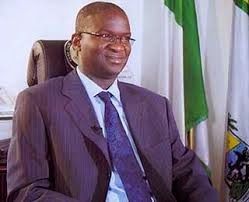Lagos saves N100.7bn to pay debts
Lagos State Government on
Wednesday said it had fine-tuned its financial strategy to ensure that funds it
borrowed were repaid.
The government added that
N100.73bn had been reserved in the state’s sinking fund reserve to pay its
debts.
The Commissioner for Finance, Mr.
Ayo Gbeleyi, said this on Wednesday in Lagos.
He added that although it had
N225bn outstanding in its debt issuance programme, over N100.73bn had been
saved as of March 2015 to pay it back.
He said, “Fifteen per cent of the
monthly Internally Generated Revenue is transferred to a Consolidated Debt
Service Account, managed by independent trustees, with N100.73bn accrued in
sinking fund reserve for repayment of outstanding issues, while coupons are
serviced regularly.”
He said the government had the
approval of the Lagos State House of Assembly for the buy-back of the Lekki-Epe
Expressway, adding that the negotiated price for that transaction was N15bn.
Gbeleyi said, “The transaction
came to closure in June last year. The payment was done in two tranches of
N7.5bn and N7.5bn.
“We paid the second tranche last
year December. And from that date, the government took effective control of the
project.”
The commissioner further
explained that after listening to the requests of the residents, the government
decided to cancel the initial planned third toll plaza on the road.
“For the purpose of the Public
Private Partnership project finance, one will find two sources of finances;
that is debt and equity. The equity is provided by promoters of the ventures.
The debt is provided by various members – commercial banks and other financial
institution.
“On the road, we have about N40bn
outstanding to this consortium of senior lenders which are eight financial
institutions, including the African Development Bank and First Bank Plc.
“Thus, even though the state
bought out equity interest in the transaction, the debt exposure must still be
honoured over agreed contracted terms and conditions.
“We must send the right signal to
the community of investors and we must respect the sanctity of contract, rule
of law and predictability of investment. It is something that is sacrosanct if
we must continue to attract the right investor to the state.”




Comments
Post a Comment